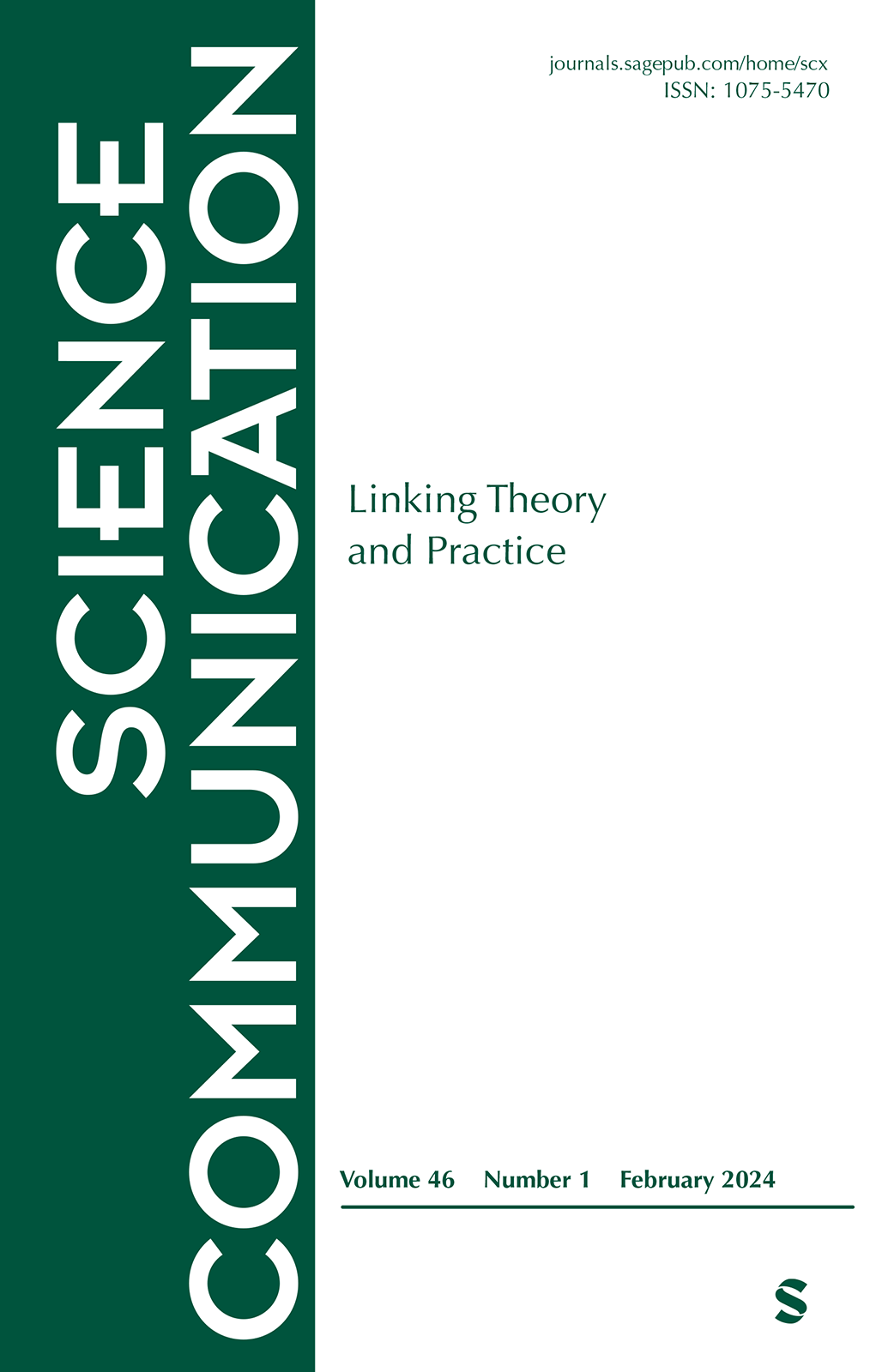无论种族、性别和专业知识如何,幽默都能提高沟通者的感知效率——如果你足够有趣的话
IF 4.1
1区 文学
Q1 COMMUNICATION
引用次数: 1
摘要
在广泛的问题和各种来源中,科学信息经常在翻译中丢失,未能以有意义的方式适当地告知、教育和吸引公众。但科学交流就像一杯葡萄酒——当它在盒子之外时会更好。更有效的科学交流的一个有前途的策略是使用幽默来吸引和教育不太感兴趣和知识渊博的公民了解重要话题。在这里,我们调查了演讲者的身份是否会影响他们在与公众联系和吸引公众方面的有效性。我们在受试者之间进行了一项2(性别:女性与男性)×2(种族:黑人与白人)×2。我们还发现,经验幽默或欢笑调节了演讲者的资历和感知效果之间的关系。我们讨论了我们的发现对科学传播研究和实践的启示。本文章由计算机程序翻译,如有差异,请以英文原文为准。
Humor Can Increase Perceived Communicator Effectiveness Regardless of Race, Gender, and Expertise—If You are Funny Enough
Across a wide range of issues and a variety of sources, scientific information often gets lost in translation, failing to properly inform, educate, and engage publics in a meaningful way. But science communication is like a wine—it is better when it is outside the box. One promising tactic for more effective scientific communication is the use of humor to both engage and educate less interested and knowledgeable citizens on important topics. Here, we investigate whether the identity of a speaker influences perceptions of their effectiveness at connecting with and engaging public audiences. We conducted a 2 (Gender: Female vs. Male) × 2 (Race: Black Speaker vs. White Speaker) × 2 (Credentials: Scientist vs. Comedian) between-subjects experiment and found that race and gender of the source, relative to their credentials, were not significant factors for predicting the perceptions of communicator effectiveness. We also found that experienced humor, or mirth, moderated the relationship between the speaker’s credentials and perceived effectiveness. We discuss the implications of our findings for science communication research and practice.
求助全文
通过发布文献求助,成功后即可免费获取论文全文。
去求助
来源期刊

Science Communication
COMMUNICATION-
CiteScore
13.50
自引率
4.40%
发文量
19
期刊介绍:
Science Communication is a prestigious journal that focuses on communication research. It is recognized globally for publishing top-quality manuscripts that demonstrate excellent theoretical frameworks and robust methodology. Our journal embraces a broad definition of science, encompassing not only the natural and physical sciences but also social science, technology, environment, engineering, and health. Regardless of the scientific area, effective communication is always the focal point of our investigations.
Apart from theoretical and methodological rigor, we place great emphasis on the practical implications of scientific communication. Therefore, we expect all submitted manuscripts to address the real-world applications and significance of their research, alongside theoretical considerations.
In summary, Science Communication is an internationally renowned journal dedicated to bridging the gap between science and society. By promoting effective communication in various scientific domains, we strive to engage readers with intriguing research that has tangible implications for the world around us.
 求助内容:
求助内容: 应助结果提醒方式:
应助结果提醒方式:


